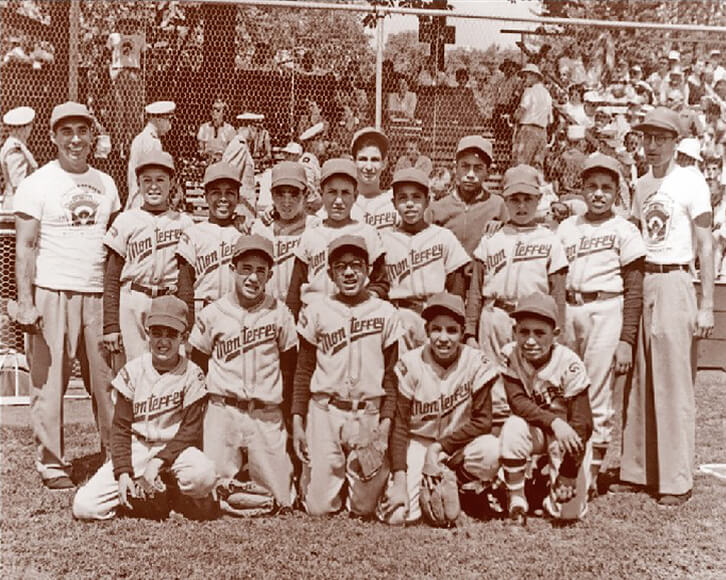
Texas Border Business
By Roberto Hugo González
On January 5, 2024, the world received the news of the passing of Carlos Bremer Gutiérrez, a man who left an indelible mark on the history of Monterrey, Mexico, and beyond. A prominent businessman and visionary, his legacy will endure over time. Moreover, his contribution was not limited to his business success. Still, he also left an unforgettable mark in cinema and passionate storytelling, which he shared with a large audience during one of his public appearances.
Bremer, known for his entrepreneurial spirit and business vision, stood out in various sectors throughout his life. However, one of the most unexpected aspects of his legacy was his involvement in making a movie that moved audiences around the world. In one of his public appearances, Bremer excitedly shared the story behind this movie, which began as an unlikely idea.
In the world of show business and cinema, there are often moments when individuals find themselves facing unexpected opportunities that challenge their preconceived notions and convictions. Such was the case for Carlos Bremer Gutiérrez, a man who had once vowed never to be part of the movie industry or television.
During 2004-2005, a turning point in his life occurred when a group of American filmmakers from Hollywood studios approached him with an intriguing proposition.

The filmmakers revealed their desire to create a film centered around an act of heroism by a Monterrey baseball team comprised of children. Initially, Bremer was left bewildered, wondering why they had sought him out, as Mexico had no tax exemptions or financial incentives in that field. But the answer lay in the historical significance of his father’s name, who had played a key role in helping these children reach the World Championship in 1957.
Bremer sought guidance and consulted his legal advisors, who strongly cautioned against accepting the offer, warning him of the risk of losing everything, including his hard-earned money. The prospect seemed daunting, and the question lingered: “Should he go through with it?”
Despite the warnings, Bremer could not ignore the feeling that this opportunity was a twist of fate. He pondered the possibility and decided to take the leap of faith.
According to the narration, the financial crisis of 2008 was tough for everyone, including Hollywood filmmakers, who went broke. The story of “El Juego Perfecto” (The Perfect Game) chronicles the inspiring journey of the Monterrey baseball team. To his astonishment, the producers told him they had already faced financial ruin during the crisis and were willing to gift him the film.
Now, Bremer was left wondering what to do with this unexpected gift. He stored the film in a drawer, unsure of its destiny. Two years later, while serving as a trustee of the Clinton Foundation’s Eastern Division, he found himself rubbing shoulders with influential figures in Aspen, Colorado.
There, he encountered Susi Buffett, Warren Buffett’s daughter, who posed a surprising question.
“Hey, do you happen to know a Mexican who owns a movie about a baseball team of kids?” Susi asked.
Bremer couldn’t believe his ears. It seemed that destiny was at play once again. He responded, “Yes, I swear it’s me,” and then shared how he had come to possess the film.
In this extraordinary journey from a reluctant beginning to an unforeseen twist of fate, Bremer’s involvement in cinema was far from what he had initially envisioned. It was proof of the unpredictable nature of life, where opportunities arise when least expected, and destiny often leads the way. Bremer’s story reminds us that the most remarkable adventures sometimes begin with a single, unexpected “yes.”
Bremer had no choice but to produce the movie, and now he faced a new challenge: distribution. Susi, his close friend and collaborator, expressed concern about the movie’s fate and asked curiously. Bremer replied, “Why?”
Susi’s response was surprising: “Because the Coca-Cola Company of the United States wants it.” This statement left Bremer perplexed. He continued, trying to justify his decision, “Well, it’s expensive, right?” referring to the cost of the movie.
Amid the narration, Bremer turned to the listening audience and said, “Yes. Everything I’m telling you is true! As crazy as it may seem, it’s true. And after all, it’s time to dust off the movie that was already made.”
Worried about the direction everything was taking, Susi raised a crucial question: “Hey, but there’s a problem because we want to make copies of the movie mainly for the United States.”
With his characteristic determination, “But I made it for Mexicans to see, not for Americans. Besides, it’s the story of Mexico beating the United States at home for the first time in history in the World Championship, and it also does it with the feat of a perfect game that has never been repeated for more than 51 years. It has never been repeated, nor will it be according to the probabilities,” said Bremer.
During his speech, Bremer shared that in the United States, 86% of people go to the movies, and in Mexico, 14%.
Faced with Susi’s resistance and her firm conviction that the movie should be for the United States audience, they finally told Bremer: “Well, then you pay for the copies for Mexico.”
Despite being reluctant to spend more money than he had already invested, Bremer accepted the responsibility. He paid for 530 copies and managed to have it screened in 526 theaters in Mexico.
The result was astonishing. The movie recovered the investment and became a box office phenomenon in Mexico. Instead of the 240,000 people who were initially expected to see it, the movie was seen by 2,700,000 Mexicans. Bremer smiled and commented with satisfaction: “And that’s the perfect game, right?”
Concluding his story, Bremer invited the audience to enjoy the movie on Netflix and joked, “There it is. And remember to pay – just kidding! I recovered everything, everything.”
This part of this exciting story had been a challenge, but Carlos Bremer Gutiérrez had overcome all obstacles to bring his movie to the audience he longed for. RIP
This article was based on a video from the internet.















